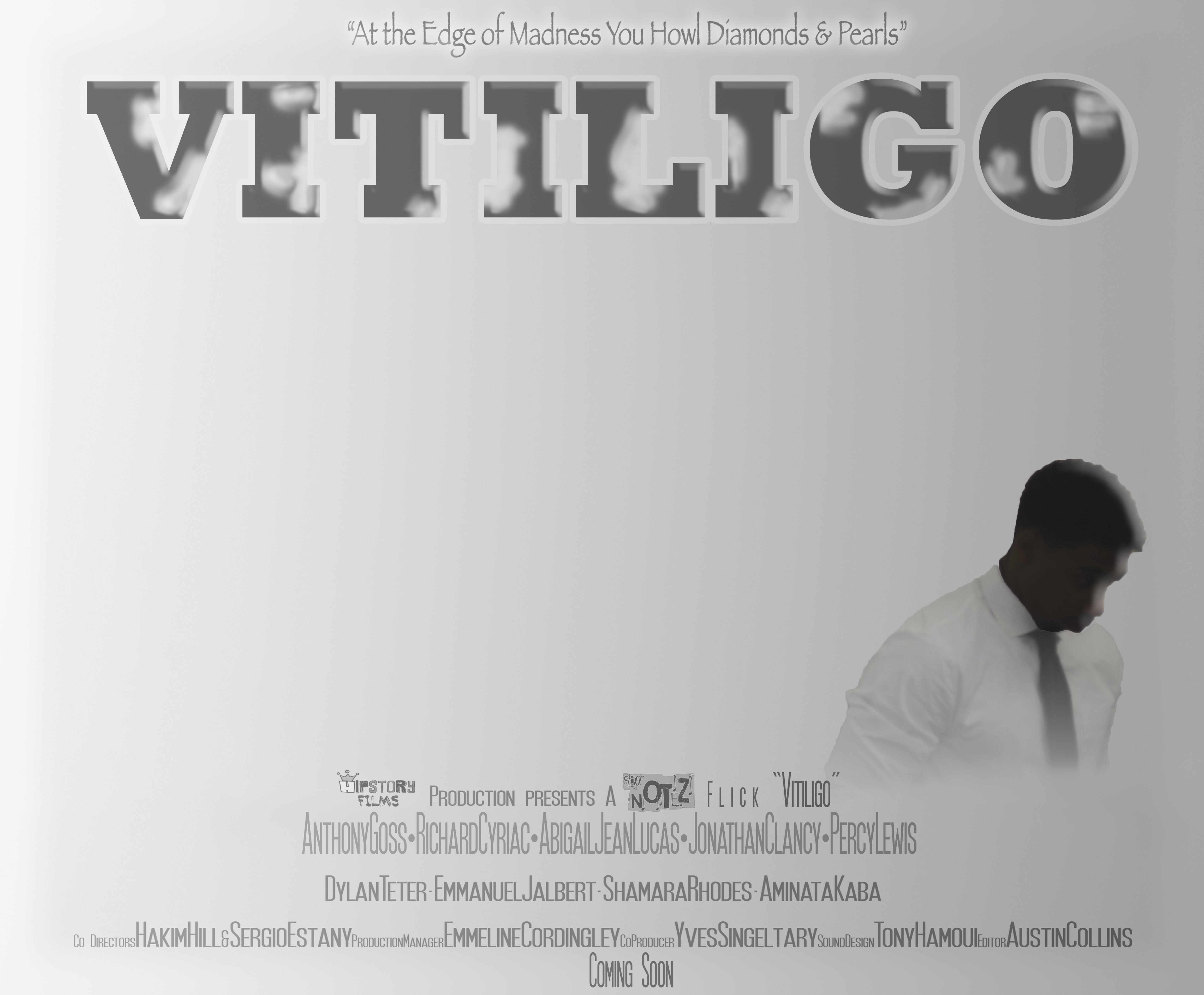By Kara Kokinos

Vitiligo is the groundwork to a conversation that has already happened many times but has yet to sink under the skin of mainstream America. The fantasy of the film is grounded in reality – taking place in a psychological limbo that explores the reality of 2014 America’s struggle to ignore the implosion of race relations as it ricochets around our collective consciousness, online and in person. The film hits you over the head with the struggle of existing within a white dominated society as a person of color, and the mental toll it takes to be the factchecker for people who would much rather dismiss those facts with personal experience or diminish the severity of race inequality to preserve ego and the status quo.
The film was made during the beginnings of the formation of Hipstory, the local collective founded by director, composer, and star of the film, Cliff Notez. It also coincided with the writing of his much lauded album, When The Sidewalk Ends, which has helped him secure the title of Best New Artist at the Boston Music Awards as well as Boston Magazine’s choice of Best Musician. The album was “essentially a musical mental break down” and inspired the story of Vitiligo. Cliff’s protagonist is spiraling as he is trying to cope with tragedy felt on a personal level and within his community, all while trying to complete grad school. As Cliff notes, he embedded himself in that reality until he broke down and had to process while creating When The Sidewalk Ends. The film draws from reality in a way that the best stories do, combining theory and palpable human emotion to let the viewer confront their own reality. It’s a thriller, so there is no trusted reality but the lessons are manifestations of real fears, real trauma and what toll the avoidance of those can take.
I concede that the film has a student feel to it – there are gaps in the vision and execution that evolve out of anyone’s first effort without a huge budget to finance the project – but the story carries it through. Vitiligo marked the first major collaboration between Cliff and Hakim ‘Kimo’ Hill and was one of the first projects that Hipstory took on. Cliff is DIY, learning all that he can to empower himself and his communities, and you feel that in the learning curve of Vitiligo’s production. Sometimes it stumbles over itself in the layers it can accomplish in the way it has been shot and edited, exemplified by the dance sequence. Despite that rawness, it is undeniable that the film is a story that desperately needed to be told and is even more necessary to see. The film has already screened at over 20 film festivals, been used as part of the curriculum at prestigious universities, and won ‘Best Short’ at the Toronto International Nollywood Film Festival and was the ‘Grand Prize Winner’ at the March on Washington Film Festival. You can watch Vitiligo now; it is streaming on YouTube and the website for the film contains a guided discussion packet. The discussion packet was made for an academic audience, much like the film itself. It’s a grad student project that reads as such; a large portion of the film itself is a lecture, which serves as a hurdle in the storytelling but simultaneously essential in understanding it.
We don’t like to confront our blind spots or to process trauma out in the open but when we take that risk and admit to ourselves that we need to see and be seen, the best parts of ourselves can be exposed. Vitiligo exposes those flaws that we try the most to bury; a lack of compassion for others or ourselves, unwillingness to be vulnerable, and the seeking of power, whether it is wished to be gained or imagined to be lost.
